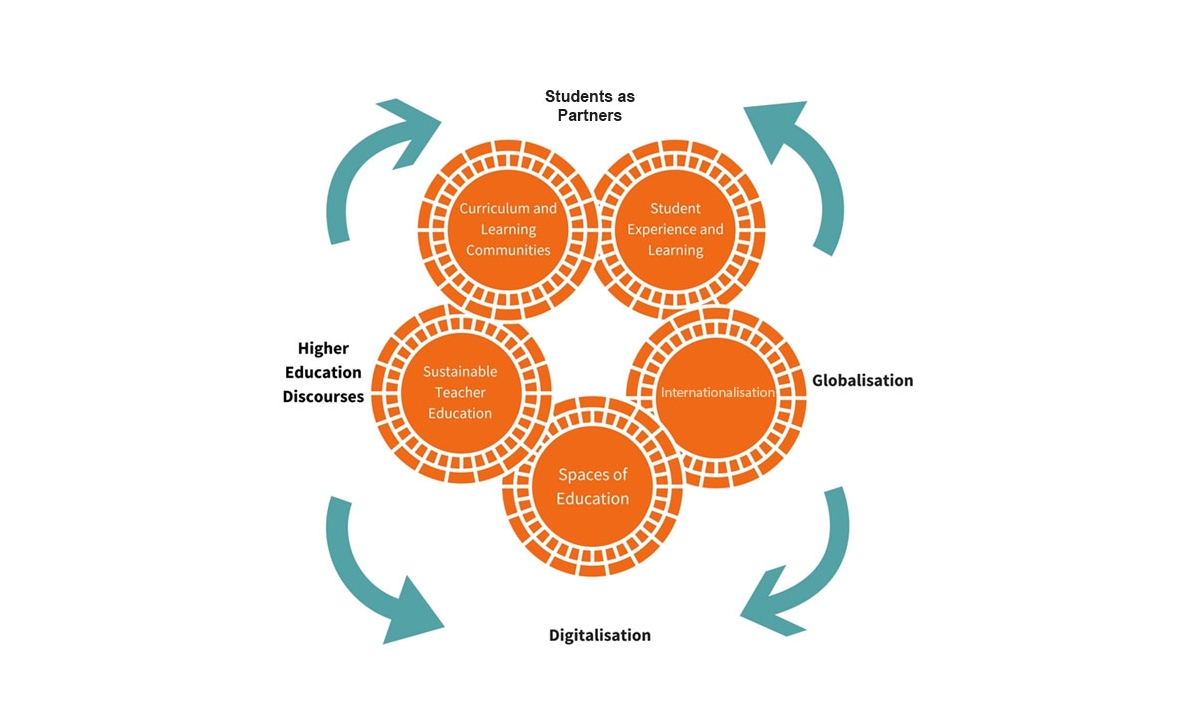HET stands for Higher Education in Transition. HET research group is one of many research groups at the Faculty of Education and Culture, Tampere University, Finland. In HET research group, the ongoing transitions in higher education are approached with following theoretical ideas:
- To research HE from societal and pedagogical perspectives where institutions, communities and individuals are examined from structural and agentic point of views.
- To draw on the sociocultural approaches to education, learning, and transition where the focus is on the roles that participation in social interactions and culturally shaped activities are having for learning and development.
- To analyze how students and staff engage in supportive academic community by investing time and energy in building participatory, dialogical environment. Engagement focuses on active citizenship where people commit themselves and become aware of their potentials in the world of change and uncertainty.
Research activities in HET research group are organized around thematic subgroups and teams formed by researchers working in the same HE research topic. These thematic areas concretise the ongoing transitions and effects in higher education what are currently researched in the HET group.
Research themes
Curriculum and Learning Communities. The aim is to make visible the different intentions, dynamics and meanings of curriculum, and encourage research-based dialogue in changing learning communities.
Sustainable teacher education. The aim is to explore and reconceptualize teacher education for sustainable professional development. The research stems from the perspective of societal, pedagogical, didactic and educational development, and encourages dialogue and collective development of teachers in their professional communities. The studies aim at promoting links among academic teacher education, teachers’ professional and personal development and work of teachers in different educational contexts.
Student Experience and Learning. The aim is to conceptualize and bring forth the meaning of studying, student engagement and learning in changing higher education circumstances from the perspectives of admission onto higher education studies, different disciplinary learning environments, diversity of study trajectories, student background characteristics and guidance and counselling.
Spaces of Education. The aim is to examine and understand the meanings and roles of space in learning and education. Our focus is on how spaces of education are constructed and how the construction processes relate to students’ and teachers’ identity. The research activities include contexts from virtual spaces, policy spaces, and transnational spaces of education.
Internationalisation. The aim is to shed light on the trends behind internationalisation from mobility, structures and policy perspectives and more closely examine the internationalisation effects and diversity challenges from the point of central actors and groups like international and home students, teachers, academic communities, academic leaders and employers.

